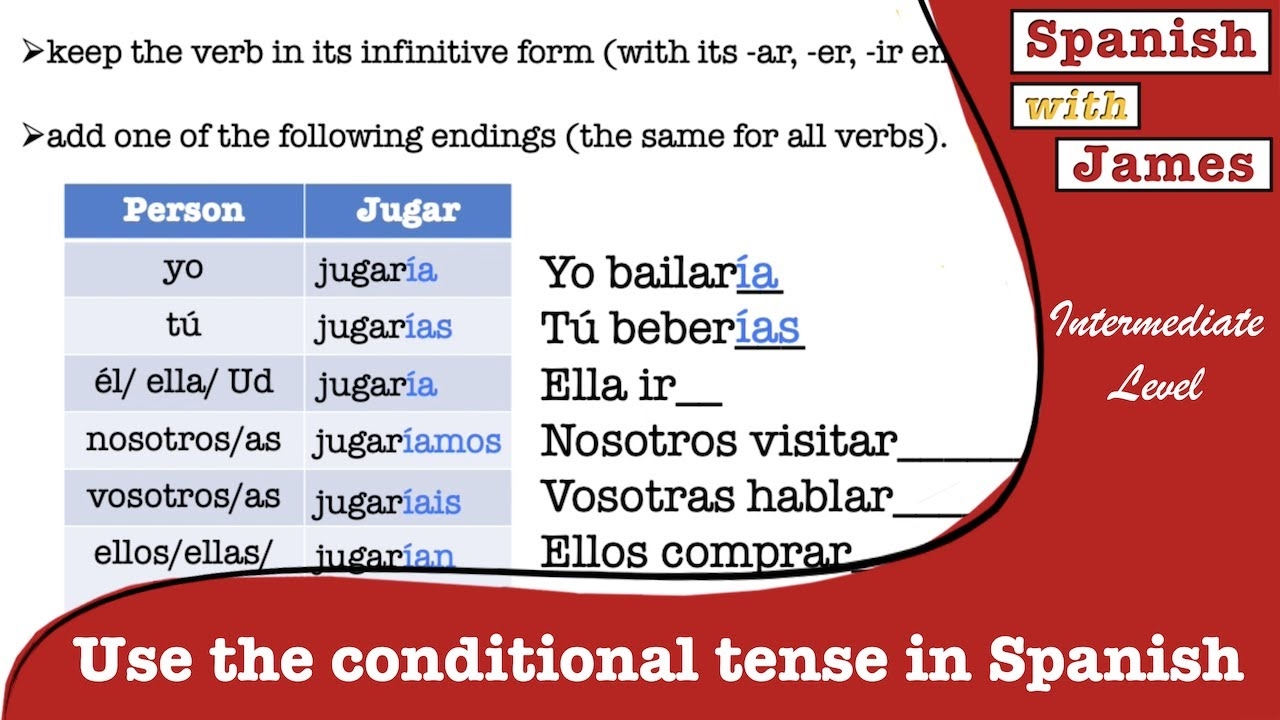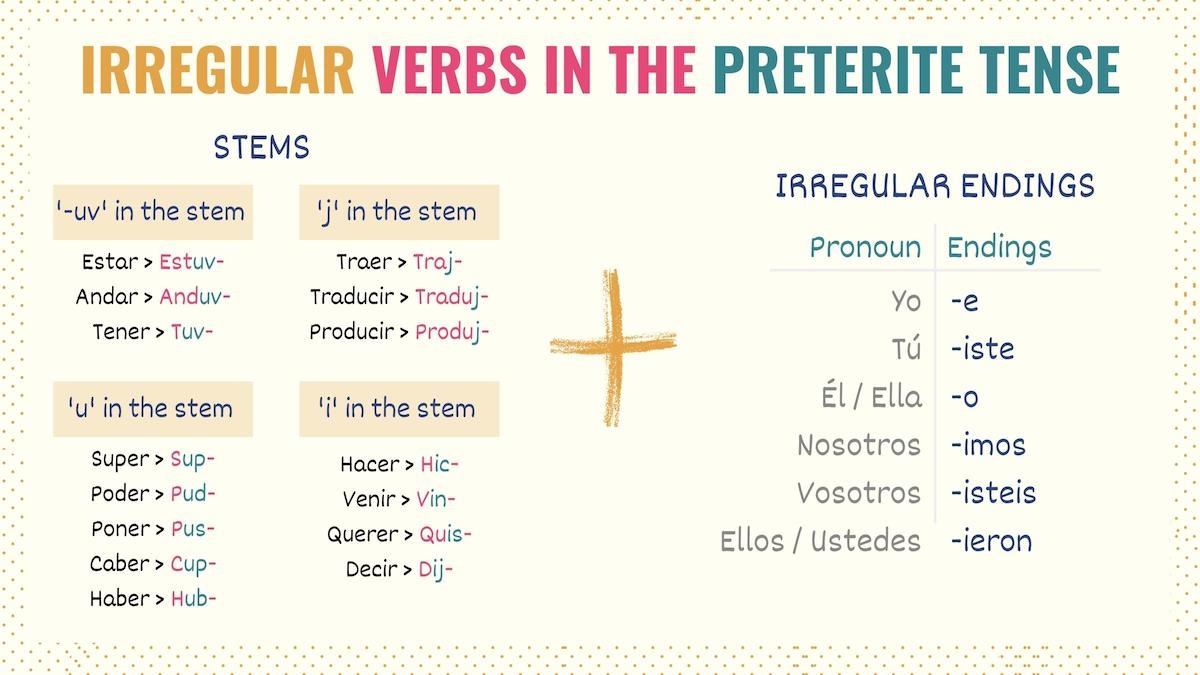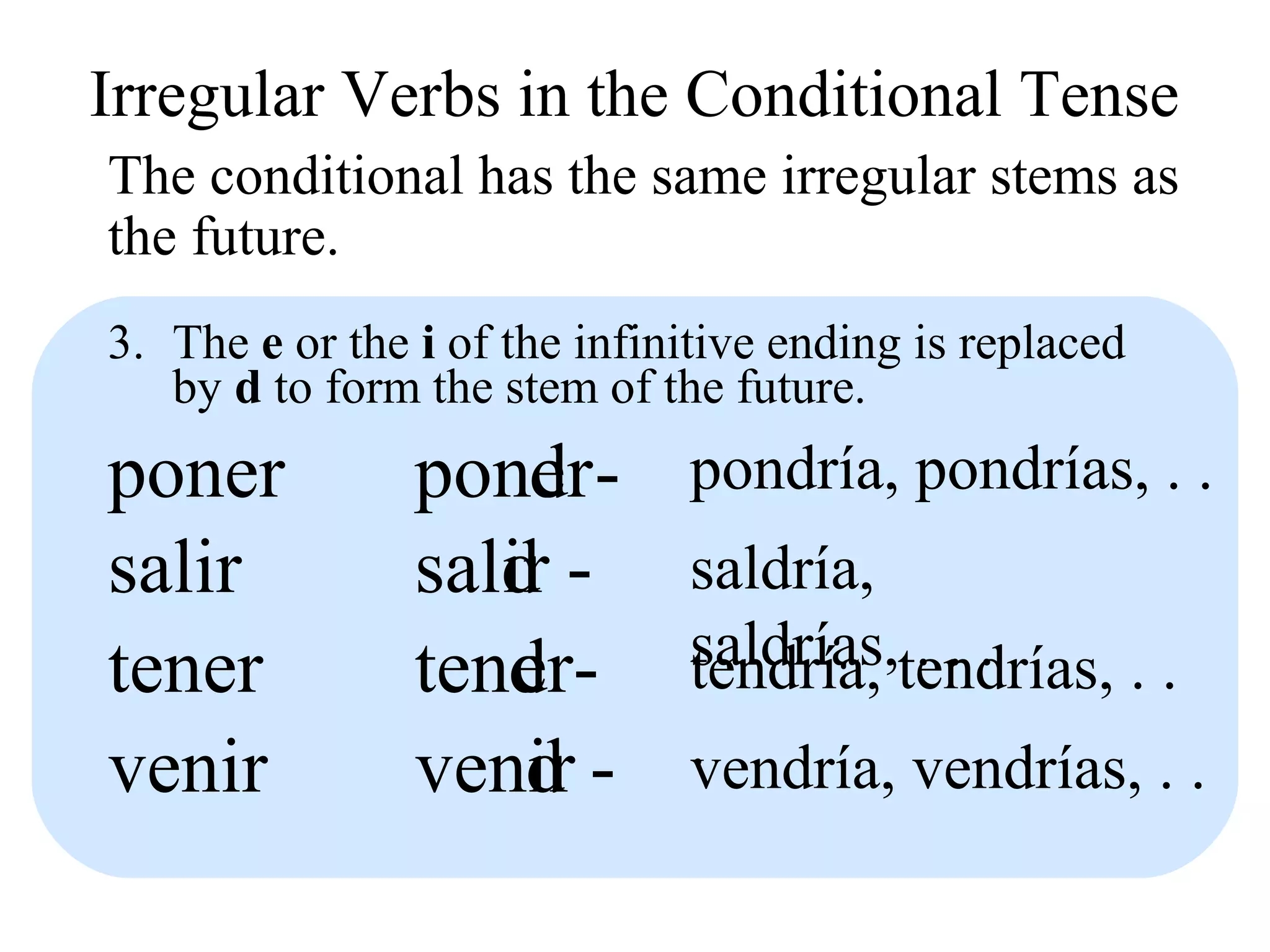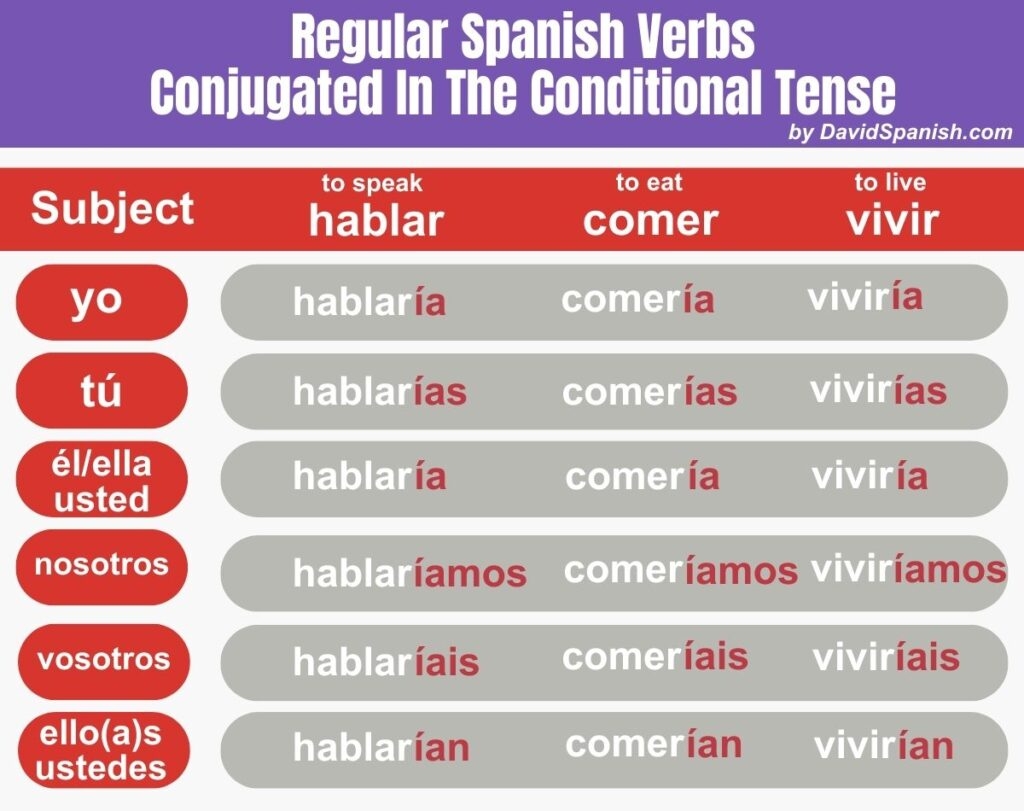Learning the Spanish conditional tense irregulars can be a bit tricky, but fear not! With a little practice and some helpful tips, you’ll be conjugating those irregular verbs like a pro in no time.
Irregular verbs in the conditional tense don’t follow the typical patterns, so it’s important to memorize them individually. Some common irregulars include “decir” (to say), “hacer” (to do/make), and “poder” (to be able to).

spanish conditional tense irregulars
Mastering Spanish Conditional Tense Irregulars
When conjugating irregular verbs in the conditional tense, pay attention to the stem changes. For example, in the verb “decir,” the stem changes to “dir-” before adding the conditional endings.
Another tip is to practice regularly with flashcards or quizzes to reinforce your knowledge of irregular verb conjugations. The more you practice, the more confident you’ll become in using them correctly.
Don’t be discouraged if you make mistakes along the way. Learning a new language takes time and patience, so be kind to yourself as you navigate the complexities of Spanish grammar.
By familiarizing yourself with the irregular verbs in the conditional tense and practicing regularly, you’ll soon be able to express hypothetical situations, desires, and polite requests with ease. ¡Buena suerte! (Good luck!)

Introduction To The Conditional Tense In Spanish YouTube

Spanish Irregular Verbs 18 Verbs Endings Tips Tell Me In Spanish

Conditional Tense PPT

Learn The Conditional Irregular Verbs In 3 Simple Groups YouTube

How To Conjugate Use The Spanish Conditional Tense
